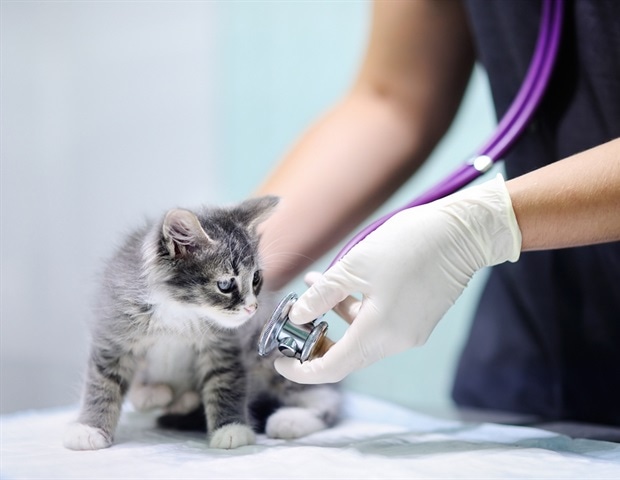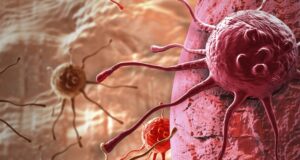
Lupus causes chronic pain, fatigue, and potentially organ damage for 1.5 million Americans and is a challenge for researchers trying to find better treatments.
Noah Oakland, an M.D.+Ph.D. Degree Program student at Virginia Tech, is exploring new treatments to manage lupus – a disease that causes the body’s immune system to mistakenly attack its own healthy tissues and organs.
With support from a new National Institutes of Health (NIH) Ruth L. Kirschstein National Research Service Award F30 award, Oakland is exploring an approach that uses DNA-like molecules that imitate bacterial DNA and have the potential to possibly ease lupus symptoms.
Kirschstein F30 grants are highly competitive and support students who are pursuing dual M.D. and Ph.D. degrees to help prepare them for careers as physician-scientists. The award to Oakland is through the National Institute of Allergy and Infectious Diseases.
Oakland, who matriculated to the Virginia Tech Carilion School of Medicine in 2020 and began the Virginia Tech Translational Biology, Medicine, and Health graduate program in 2022, would like to one day treat patients in the clinic as well as do laboratory research.
Before Noah joined my lab, we had published that bacterial DNA, which is large and variable, was able to attenuate lupus in mice. There were some discussions among team members that we needed something that was simple; but it was Noah who decided to work on a simpler, more uniform alternative to bacterial DNA.”
Xin Luo, Professor of Biomedical Sciences and Pathobiology, Virginia-Maryland College of Veterinary Medicine
Oakland focused on a synthetic, DNA-like molecule designed to mimic patterns found in bacterial DNA called CpG oligodeoxynucleotide, or CpG ODN.
“He tested this idea in cell cultures, finding that CpG ODNs function through a mechanism similar to that of bacterial DNA, but with a more pronounced effect on increasing immunosuppression, which is key to the treatment of lupus,” Luo said. “In other words, CpG ODNs may be even better than bacterial DNA in attenuating lupus.”
Oakland plans to move his approach into a mouse model. The researchers aim to see if these molecules can help reduce lupus symptoms safely. The work could lead to new, less invasive treatments that use the body’s natural immune responses to manage autoimmune diseases like lupus.
“This multifaceted project suits him very well because Noah is an excellent experimentalist in both cell cultures and animal models research,” Xin said. “More importantly, Noah has the intelligence, motivation, and creativity to carry on the project by himself, evidenced by his NIH F30 award proposal, which he wrote entirely on his own.”
Lupus is typically treated with a combination of anti-inflammatory and immunosuppressant medications and lifestyle changes to manage fatigue, chronic pain, rashes, and fever.
Oakland is the second Translational Biology, Medicine, and Health graduate program student -; in addition to Katelyn Stebbins -; to earn the respected NIH F30 award.
For Oakland, he is driven by the thrill of pursuing new knowledge and helping people who struggle with medical problems.
“When you’re doing novel things that nobody has tried before, that’s really exciting,” said Oakland, a member of the research team. “I really want both of those aspects in my career -; the more abstract goal of increasing knowledge and the tangible goal of helping someone who needs it.”
“I love the idea of seeing patients and also running a lab in my career,” Oakland said.




